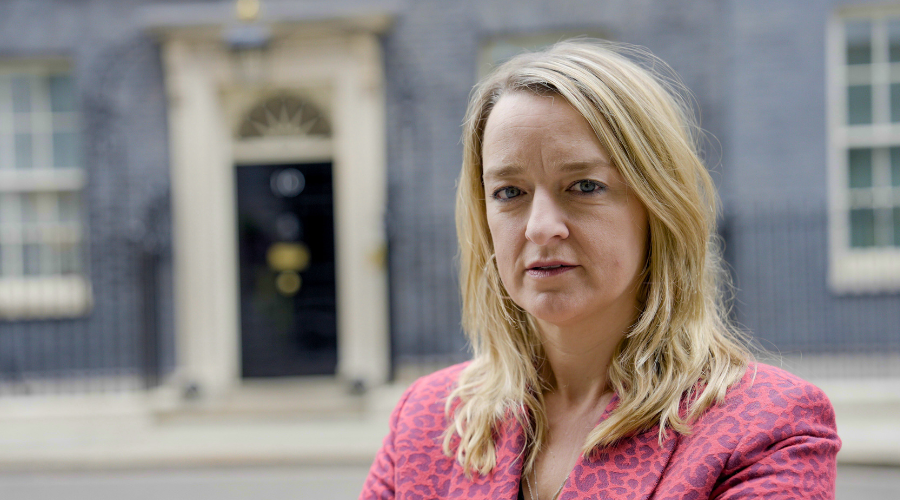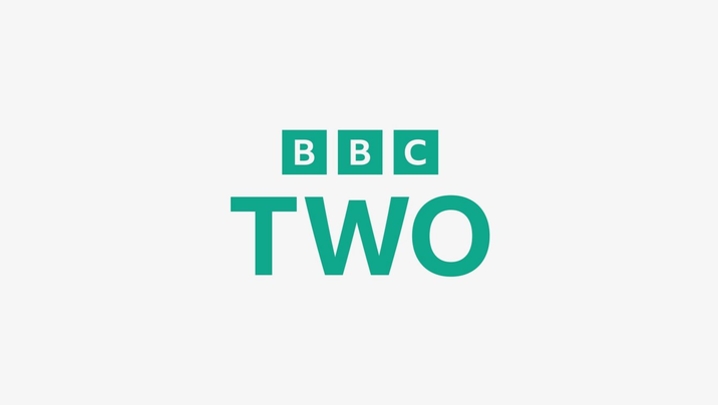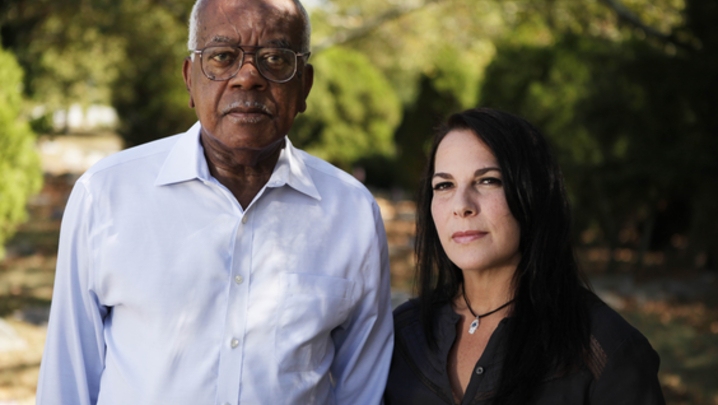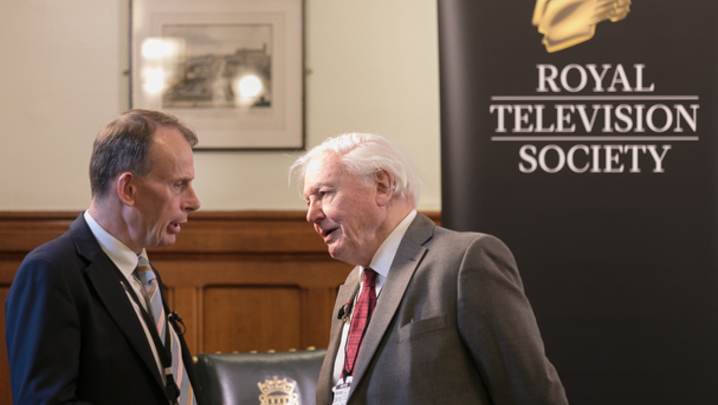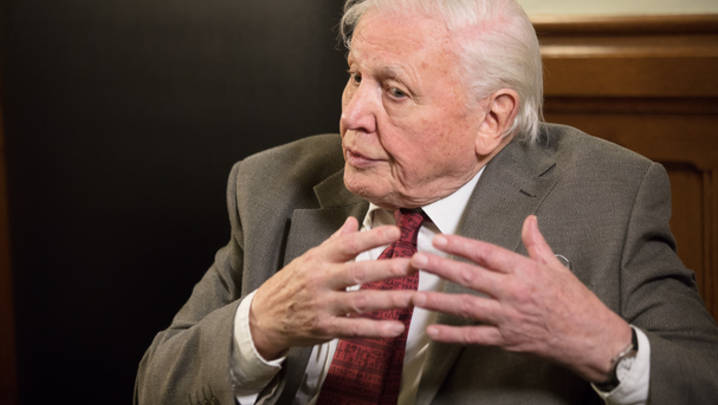“Faster and faster and faster and faster and faster.”
It doesn’t take Laura Kuenssberg long to find the words – or rather, word – to describe how the news has changed.
She’s been around to observe first-hand the shifting sands for over two decades. After cutting her teeth at Edinburgh University’s student radio, Kuenssberg was named Most Promising Newcomer by the RTS in the North East and the Borders in 2001. Since then, she’s worked as the BBC’s chief political correspondent and political editor, as well as a spell at ITV as business editor.
Back at the Beeb for a decade, she replaced Andrew Marr as the host of BBC One’s Sunday morning politics show in 2022. Since then, she has interviewed everyone from Rishi Sunak to Arnold Schwarzenegger. Her 2021 grilling of Dominic Cummings won her the Network Interview of the Year at the 2022 awards, and earlier this year, she was nominated for an RTS Television Journalism award, namely Network Presenter of the Year.
The pace wasn’t this frantic when she started, Kuenssberg tells me.
“When I started, if you had done an interview on tape, you either needed to drive to your nearest newsroom and then feed it down to London, or you needed to get a big satellite truck to meet you somewhere.” When talking to politicians “previously, it might have taken half a day to get a response to something”.
Now, Westminster is glued to its phones. “Even in the House of Commons, sometimes you see MPs looking at things on X, and they start responding to things almost in real time.”
While this means politicians can answer press queries on a dime, it also allows them to bypass the press altogether. Before X, politicians looking to reach the electorate would have to make an appearance on one kind of news media or another. Whether their comments appeared in print or on TV, the process involved a journalist, who would challenge and contextualise what was being said. Social media allows politicians to reach people directly, before a professional has the chance to ask questions, Kuenssberg notes. This is especially relevant as people shift away from terrestrial news and towards their phones.
Another impact of instant communication is that political spats play out over a shorter and shorter period of time, putting pressure on journalists to work faster. Certainly, the recent succession of Prime Ministers is enough to make anyone dizzy: Boris Johnson left office in September 2022, followed by Liz Truss, for all of 49 days. Rishi Sunak took up the reigns in October 2022, and has been in office ever since.
Kuenssberg has spoken to all three, and tells me the trio “are extremely different characters, and very, very, very different interviewees.”
“Boris Johnson, being a journalist himself, always knew how to create a headline,” she says. “In interviews, he would always try to take control and veer off into his flight of fancy of that particular moment.”
By Kuenssberg’s estimation, the current Prime Minister is less interested in fireworks.
“Rishi Sunak approaches interviews in a completely different way, where he has absolutely absorbed and learned whatever the lines are that they want to get out on that particular day.”
Kuenssberg continues, “It’s like a necessary evil for him. He knows intellectually that it is important to communicate with the public, but you get the feeling it’s never something he’s going choose to do, whereas Johnson enjoyed the joust.”
And Truss? Britain’s shortest-ruling Prime Minister may also be its most teased, including a memorable stunt involving a head of lettuce. Rather than add to the jokes, Kuenssberg opts for something more measured.
“[Truss] knew she had been much-mocked, and she was also perfectly happy to lean into that.”
“We showed some of the pictures of her seeming to be dressing up as Margaret Thatcher and standing on a tank [in November 2021 during a visit to Estonia, prior to her becoming Prime Minister], and she seemed to absolutely love that.”
Regardless of who lives in Number 10, some things never change. Politicians have always had a script, meaning it has always been a reporter’s job to get past it, in search of something more genuine.
Plenty of ink has been spilled about the post-2016, post-truth world in which we all find ourselves, but Kuenssberg thinks things are more complicated than that. Political divisions didn’t magic themselves into being in time for Trump and Brexit. The 2008 financial crash, which led to increased scrutiny over bankers’ bonuses, and the 2014 Scottish independence referendum, were also hugely divisive, she notes.
Similarly, spin has always been around: what has changed is the degree to which it’s used. Whilst in office, Trump did genuinely push the limit of truth “further than it had ever gone before in modern times”, Kuenssberg says. A pattern has also emerged in Britain, she adds: February 2024 is the third time in as many months that the UK Statistics Authority has rebuked the government for its misleading use of figures.
Then, there is the infamous £350 million figure put on the side of a bus during the Brexit referendum campaign.
“They knew it would create a conversation, and they were delighted when the other side said ‘Ah, but you’re being misleading with how you’re using that figure’, because it creates controversy.”
With her time now devoted to Sunday with Laura Kuenssberg, does she miss the mania of daily reporting? She replies diplomatically – “It’s nice to be on a weekly programme now” – and laughs.
Instead of “breathlessly reporting” on things that have just happened, a weekly show can provide more context. In journalism, everyone wants to be first, which means “you can just have a big race to do a top layer [of a story], but that doesn’t really tell our audiences everything.”
“Instead of a three-minute news piece, we might be doing a 15-minute or even a 20-minute interview with one person.”
People “don’t just want to know things, they want to understand them,” Kuenssberg says, “and that’s a different job.”
On the horizon, she recognises the threat to truth posed by AI, deepfakes and news diets dominated by social media. Rather than sitting around waiting for the much-reported death of ‘legacy’ media, though, Kuenssberg is ready to meet the challenge head on.
“Journalism is here to stay,” she says, “and [it is] vital.”

